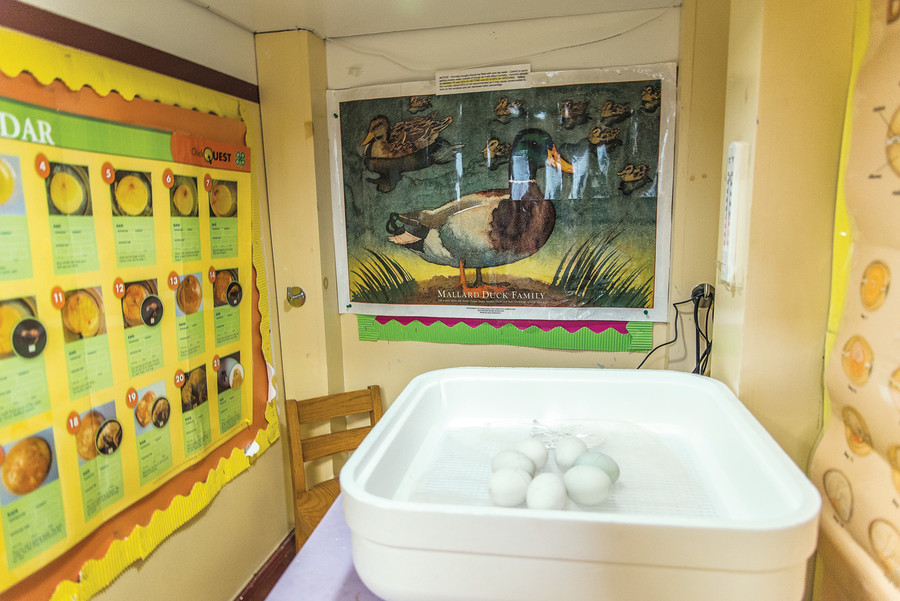Teachers hatch plan for learning
Children are studying the life cycle of various living things at the Riverdale Montessori School, and for a class of kindergartners, that means carefully nurturing duck eggs.
“We’re expecting that our ducklings will hatch around June 1 or 2,” teacher Natasha Torres said.
For the 12th year in a row, Ms. Torres’ students are monitoring the growth and hatching of duck eggs insider their classroom. The eggs are placed in an incubator and under the guidance of both their teachers, Ms. Torres and Nazmije Bakrqr, students get to roll the eggs three times a day to ensure the embryos don’t stick to the shell.
Ms. Torres tries to throw in some science vocabulary. She calls her students “scientists” and quizzes them about the process. The group of joyful 5 year olds regularly employ words like embryo, fertilized and albumen.
“Are supermarket eggs the same as the duck eggs?” Ms. Torres asked her students, prompting some to say, “No! Because they’re not fertilized!”
The students know it takes 28 days for an embryo to grow into a duckling. They learned that “mamma birds” usually build nests to keep the eggs warm and safe from predators.
One of the students’ favorite parts of this experience is candling. The children take the eggs to the darkest room they have available and with a special light are able to see through the shell and observe what they have learned to be blood vessels, a pumping heart, and the eyes of the growing baby duck.
One of the ducks didn’t make it, though. Ms. Torres explained it was due to the mother duck’s diet.
“[We made a] parallel from them growing in their mother’s’ womb and how nutrition is important for birds, too,” she explained.
Ms. Torres asked her students what they thought “delicious and nutritious food” was. When the students began listing vegetables, their teacher asked about candy bars — drawing a loud negative.
Once the ducks hatch, the children will throw a “duck party” to watch the birds swim for the first time. The students will get to keep the ducklings for a week in the classroom before they are sent to the Harvest Moon Farm & Orchard in North Salem.
“[What I enjoy the most is] going through it with the children, the discoveries that they make, how they share their thoughts and feelings… it’s more beneficial for them to see something that’s actually occurring, as opposed to me reading a book showing a chart.” Ms. Torres said. “It’s something that I hope I can continue for as long as I am able to teach,” she added.






